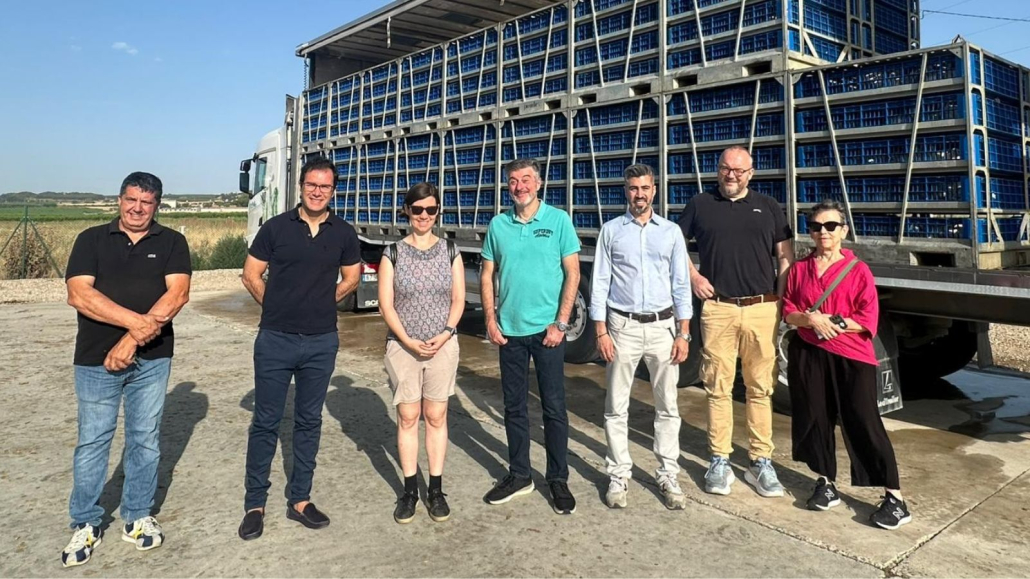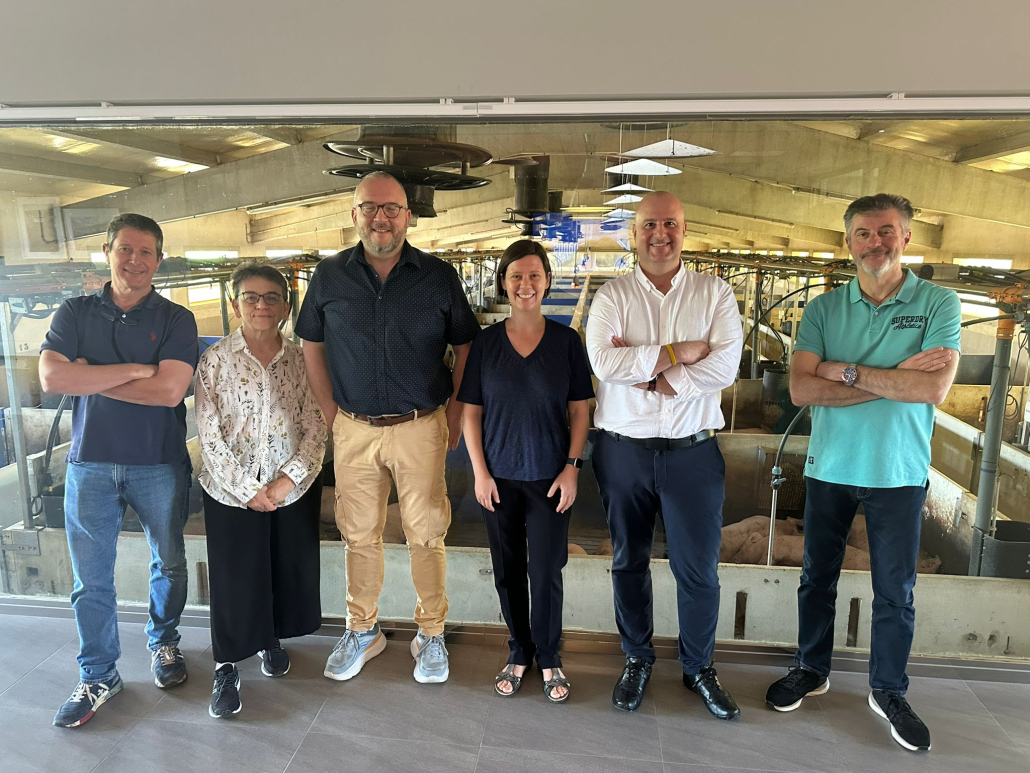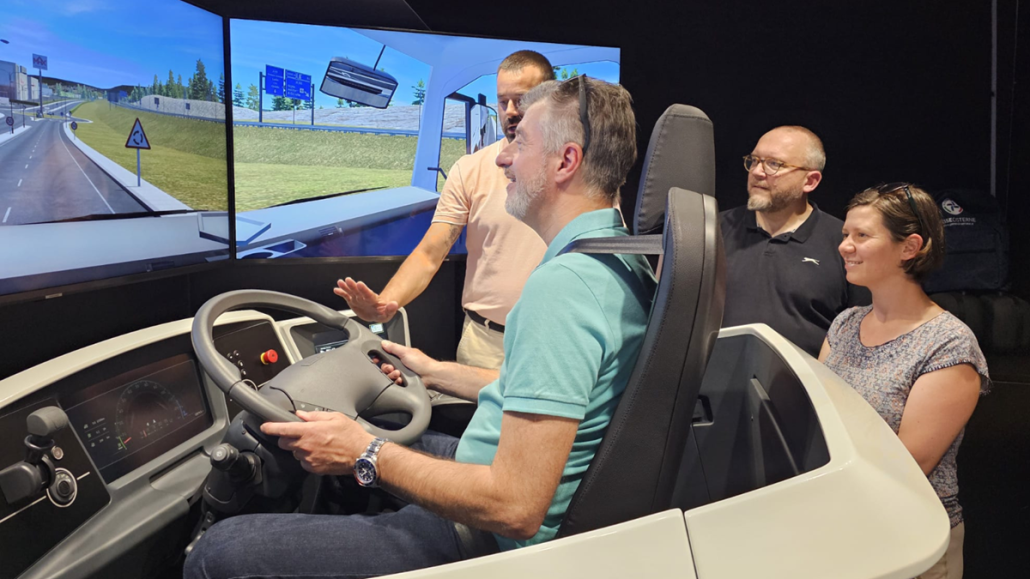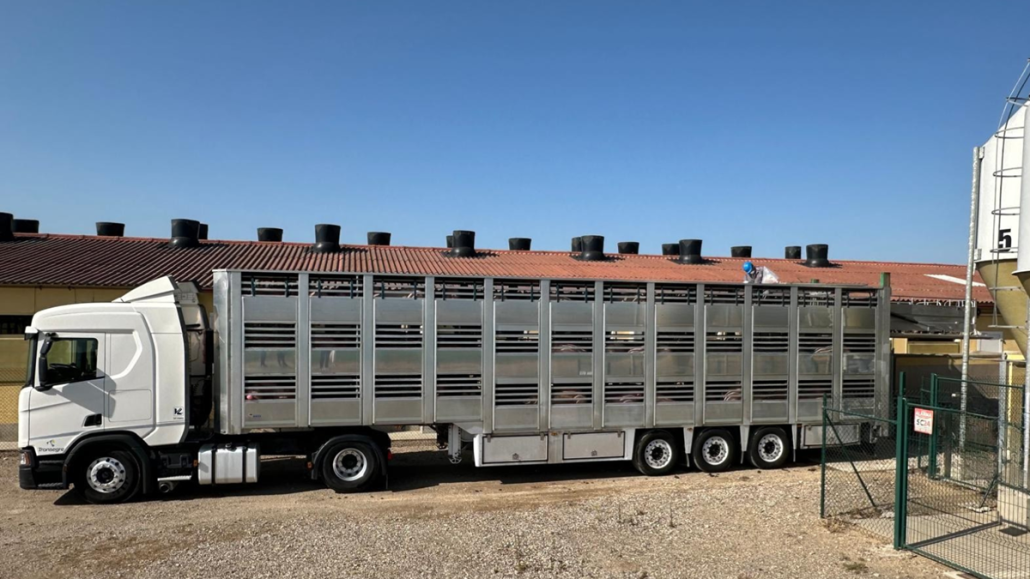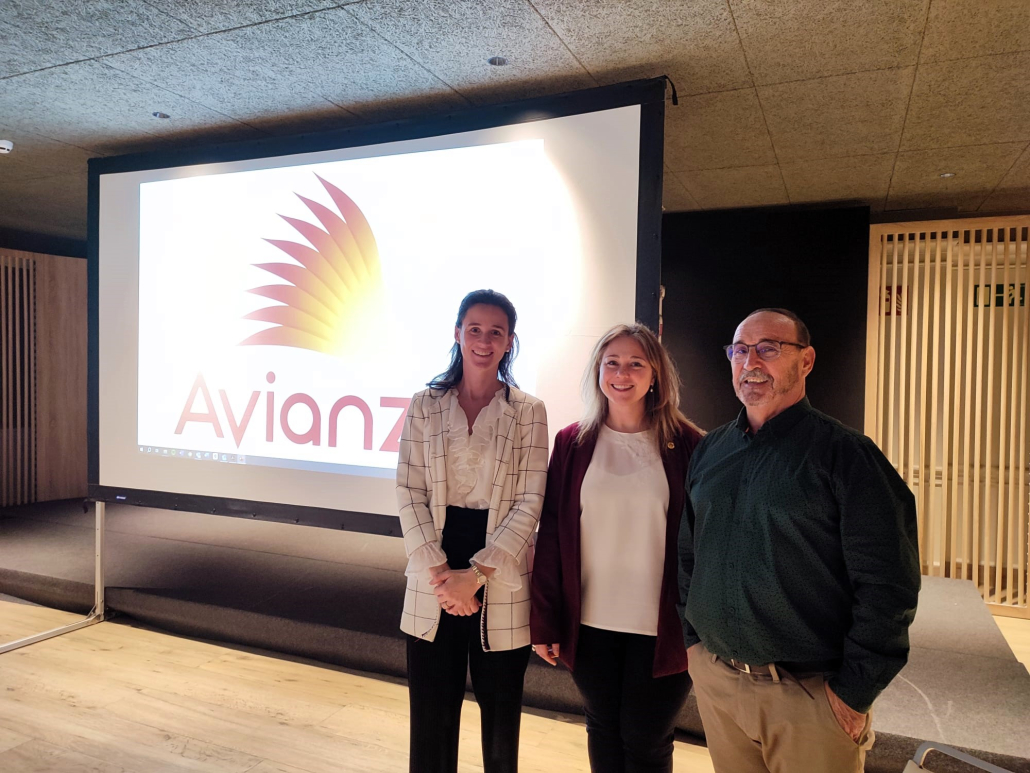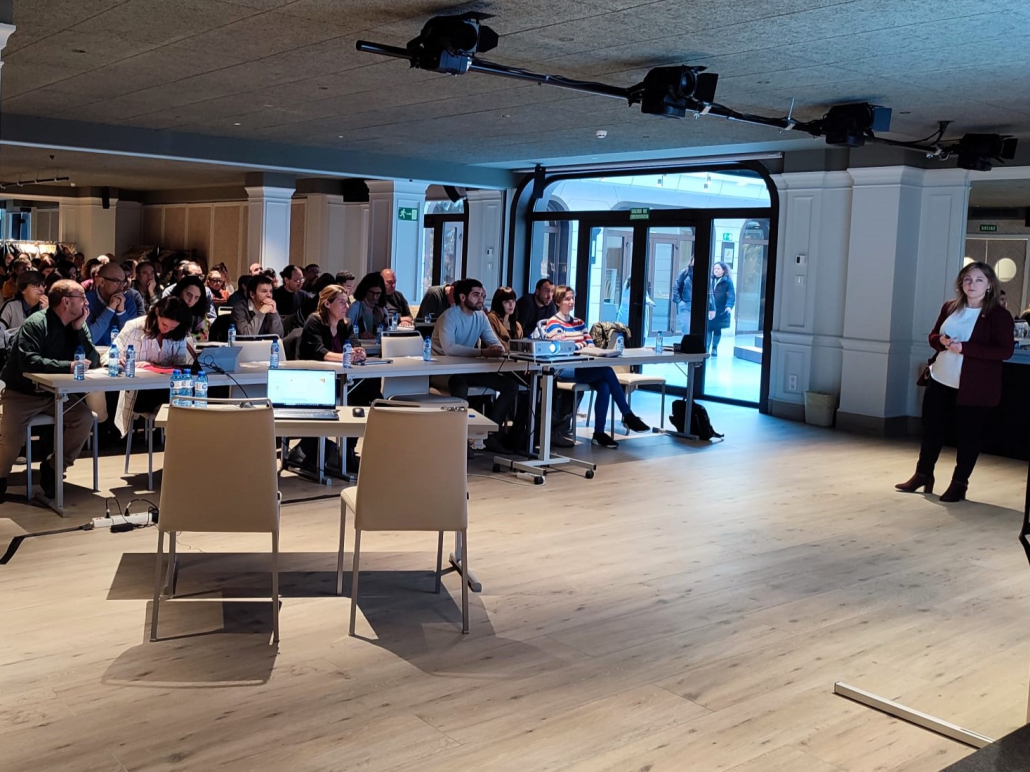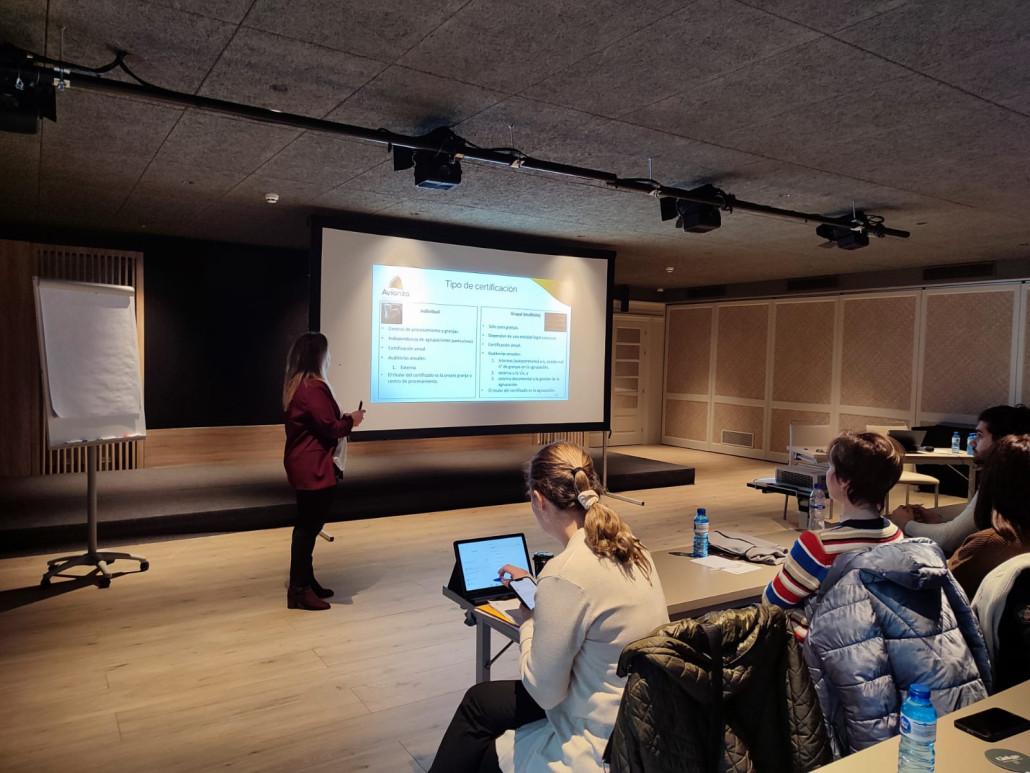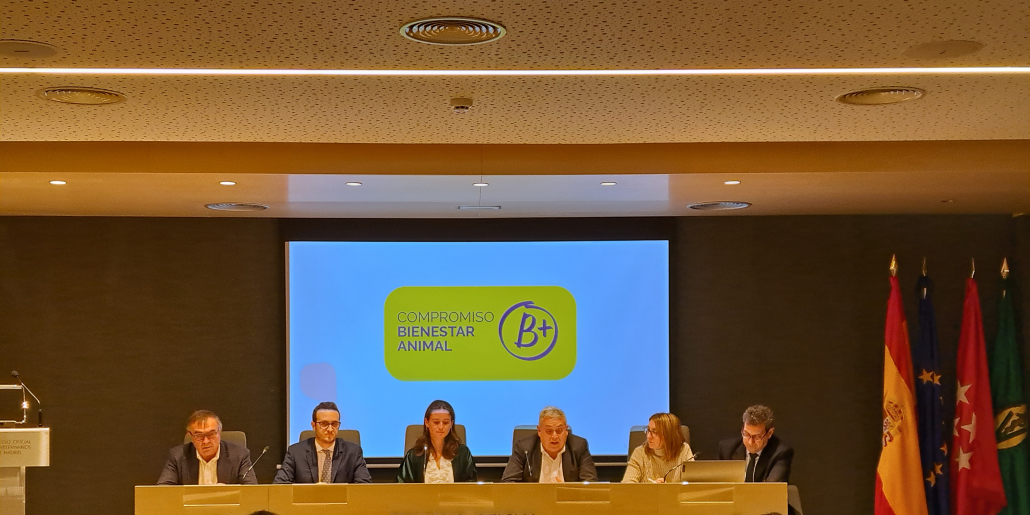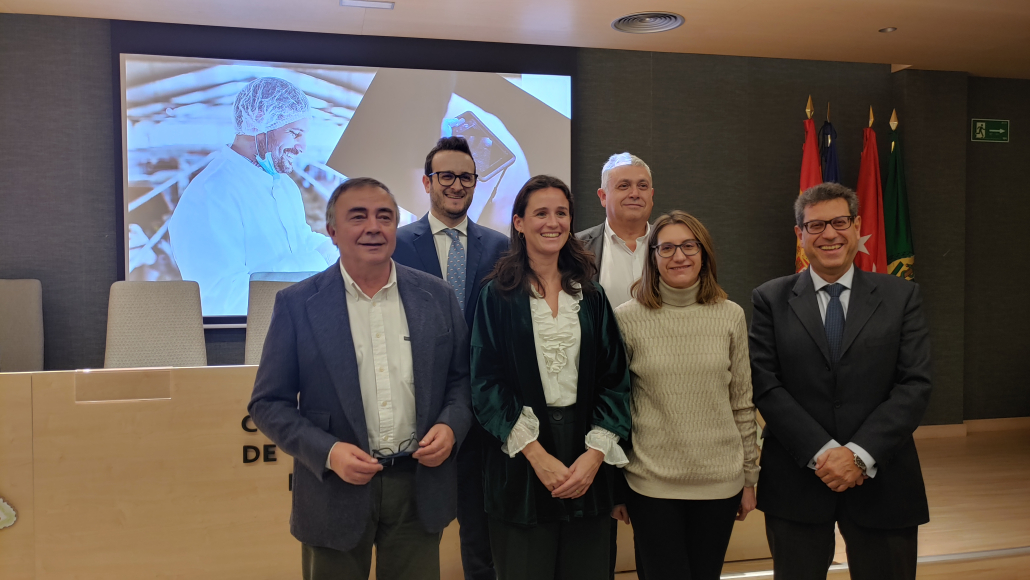AVIANZA and ANPROGAPOR, in collaboration with the Ministry of Agriculture, Fisheries and Food, are showing the European Commission team the progress made by the Spanish sector in professionalization, innovation and real animal welfare measures ahead of the crucial processing of the amendments to the new animal transport regulations in Europe.
Madrid, June 30, 2025As part of the review process for European regulations on the transport of live animals, representatives from the European Commission's Directorate-General for Health and Food Safety (DG SANTE) visited various poultry and pig farms in Spain this week. They sought to gain firsthand knowledge of the current situation in these sectors and the animal welfare measures applied throughout the logistics process.
The visit was led by Andrea Gavinelli, head of the Animal Welfare Unit of DG SANTE, accompanied by Lucie Carrouée, deputy director of the unit and Mitja Sedlbauer, Policy Officer. During the day, European officials were able to observe firsthand how animals are loaded and transported on pig and poultry farms, as well as the innovative measures implemented to ensure their well-being.
Spain, as a key livestock-producing country in southern Europe, faces specific climatic and geographical conditions that must be taken into account in the new regulations currently under review. Measures such as the ban on daytime transport when temperatures exceed 30°C, currently under consideration in Brussels, could seriously affect the operations of many farms, especially in the south of the Iberian Peninsula, where this situation is common for much of the year. To this end, the sector has invested heavily in adapting its transport processes, pioneering them in Europe.
From AVIANZA, the Spanish Interprofessional Association of Poultry Meat, and ANPROGAPOR, the National Association of Pig Producers, wanted to showcase the sector's commitment to animal welfare, which has been inherent in these industries for decades, both on farms and in transport, as well as its efforts in training, monitoring, and continuous improvement. Community representatives were able to learn about:
- The specific conditions and procedures that guarantee animal welfare during transport, loading systems, and specific training for shippers and transporters.
- Animal transport simulation rooms for technical training.
- Route tracking systems to prevent sudden braking, excessive speed, or inappropriate stops.
- Vehicles equipped with ventilation, sprinklers, waterers, and sensors that monitor the state of the animal's environment.
- Optimized transportation planning to minimize stress and improve comfort.
As has been pointed out Jordi Montfort, Secretary General of AVIANZA, "Our goal is for decisions made in Europe to be based on real-world knowledge. Spain has made a clear commitment to animal welfare and innovation, and this visit is an opportunity to demonstrate that."
For its part, Miguel Ángel Higuera, director of ANPROGAPOR, stressed "the importance of adapting regulations to the context of countries like Spain, where livestock farming is an essential, professionalized activity committed to continuous improvement."
The delegation was also accompanied by Josep Solé, president of AVIANZA, and by the technical team of Ministry of Agriculture, Fisheries and Food of Spain (MAPA), whose collaboration has been essential in organizing this event and showcasing the collaborative work between the administration and the sector to strengthen a responsible, innovative, and sustainable meat model.
AVIANZA and ANPROGAPOR hope that this visit will help ensure that the amendments to the European animal transport regulations take into account the experience, progress, and specificities of countries like ours, and allow us to continue building a solid European model adapted to territorial diversity.
